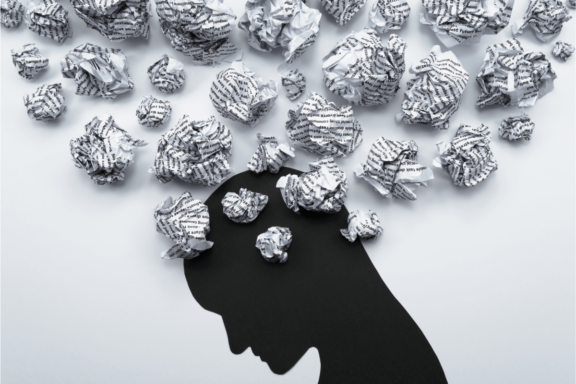In the United States, more than 20 million people have a substance use disorder, and the majority never get the care they need.¹ Battling an addiction can take a heavy toll on your physical and mental health while upending your entire life. But it doesn’t have to be that way. By turning to substance abuse treatment in Connecticut, you can get the help you need.
Understanding Substance Abuse: The Changes It Makes in the Brain
Substance use disorder is a chronic and relapsing brain disorder that involves the compulsive seeking and taking of the source of the addiction. To understand its development, it’s essential to first understand how addiction impacts the brain.
Think of the brain like a computer, but instead of electrical circuits, you have neurons. These are cells that control the flow of information. When a neuron receives enough information from other neurons to which it is connected, it fires and sends a signal to yet more neurons. Groups of neurons send information back and forth, doing so by releasing neurotransmitters.
Addiction changes the way that neurons process, receive, and send signals. Some drugs, like marijuana and heroin, activate neurons because they have a chemical structure that mimics that of a neurotransmitter.² Other drugs, like cocaine and amphetamine, lead neurons to release vast amounts of neurotransmitters.
Substances like drugs and alcohol impact various areas of the brain, including its reward center. When you do something crucial for your survival, like eating, having sex, or socializing, the brain releases dopamine, which marks that activity as pleasurable and vital. The problem is that drugs and alcohol over-activate the reward center.
Not only does that make it more likely that you’ll use again, but over time, this center becomes less sensitive, making it more difficult for you to experience pleasure from anything other than the substance.³
At the same time, the extended amygdala, which plays a role in feelings like irritability and anxiety, becomes more sensitive. This is what leads you to seek substances to alleviate these uncomfortable feelings.³
Finally, the prefrontal cortex, which controls your ability to solve problems, think, and exert self-control, gets out of balance.³
Do You Have an Addiction Problem? Signs and Symptoms of Substance Abuse
Someone struggling with an addiction can experience a variety of symptoms and signs, including⁴:
- Inability to stop using the substance despite negative effects
- Intense cravings
- Worrying about the next dose
- Neglecting responsibilities
- Entering risky situations to obtain or use the substance
- Devoting a lot of time to getting, using, or recovering from the substance
- Developing tolerance
- Changing social patterns
- Neglecting appearance
- Loss of motivation
- Hiding substance use
Depending on the substance, there are many physical signs and symptoms you may experience, including face sores, appetite changes, differences in sleep patterns, and more.
Getting Substance Abuse Treatment in Connecticut
Because of the way addiction affects the brain, it can be challenging to stop using alcohol or drugs. Your body has become used to functioning with the substance, so if you stop, you can experience crippling withdrawal symptoms that could easily trigger you to start using again. To get sober, the majority of people need to turn to a substance abuse treatment program.
Day Treatment Program: Offering a High Level of Flexible Treatment
Connecticut Center for Recovery offers a day treatment program that allows you to get a high level of care without staying at our facilities overnight. Many people find it challenging to set aside work and family responsibilities to enter residential care, so we provide the option to get help on a more manageable schedule.
You can expect to receive individual and group therapy sessions during day treatment. Individual therapy allows you to understand what led you to the development of an addiction and what could prevent you from achieving long-term sobriety. Group therapy is essential because it lets you see that others struggle with similar challenges.
Intensive Outpatient Program: Continuing Your Treatment
After completing our day treatment program, we recommend clients attend our intensive outpatient program (IOP). This program offers more freedom while still getting up to three hours of care daily. This level of treatment allows you to continue building on your recovery and gaining confidence in your ability to stay sober.
Extended Care: Helping You Maintain Your Sobriety
An extended care program is tailored to your exact needs. With your therapist, you can put together the right treatments for the exact time you need. You can choose to extend your stay in one of our other programs or get extra individual or group therapy sessions to deal with ongoing mental health concerns.
We focus on relapse prevention in our extended care programs, making it easier for you to understand and better manage your triggers.
Achieving Sobriety at Connecticut Center for Recovery
Successfully battling an addiction doesn’t just depend on your willpower or your dedication to getting sober. Because it’s an illness, you need help from professionals.
At the Connecticut Center for Recovery, we provide several treatment programs that can help you address the underlying cause of the addiction. You don’t have to face this alone. Contact the Connecticut Center for Recovery today to get started.
Sources:
[1] https://health.gov/healthypeople/objectives-and-data/browse-objectives/addiction
[2] https://nida.nih.gov/publications/drugs-brains-behavior-science-addiction/drugs-brain
[3] https://www.ncbi.nlm.nih.gov/pmc/articles/PMC4549070/
[4] https://www.psychologytoday.com/us/basics/addiction/signs-and-symptoms-addiction


